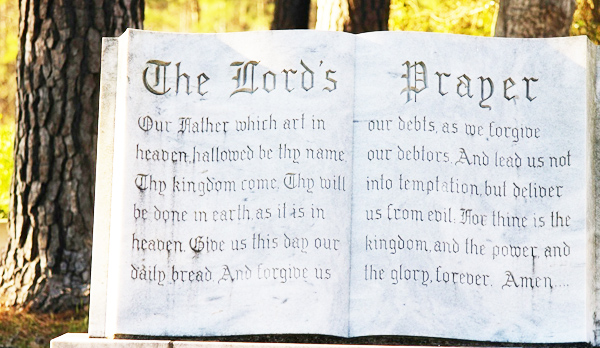No one who abides in him keeps on sinning; no one who keeps on sinning has either seen him or known him (1 John 3:6). This is a sobering passage. It is meant to be. However, it should not be a passage that causes the Christian believer to despair. John is not condemning the one who is seeking to overcome sin, but the one who habitually gives into sin without repenting. John purposefully describes here the one who is (or is not) continually sinning (as is evident from the “linear present”, or continuing action, of the verbs in the original
Devotions
What Is Salvation, and Where Is It Found?
For by grace you have been saved through faith. And this is not your own doing; it is the gift of God (Ephesians 2:8). Salvation means “to deliver” someone out of danger. Salvation, especially in the Bible, implies then that people need to be saved. It also implies that someone is able and willing to save the person who needs to be saved. The Bible teaches that Jesus Christ is the only source of true salvation for any human being.
Test Yourself, but Trust In Jesus
Examine yourselves, to see whether you are in the faith. Test yourselves (2 Corinthians 13:5). Paul’s exhortation to be regularly testing the sincerity and purity of your own faith is not given in order to make you doubt your salvation every other day. Faith in Christ is exactly that: faith in Jesus’ finished work, not in our own faithfulness. However, we are to be regularly doing the hard work of honest self-appraisal.
Jesus Says, “I Am the Door”
I am the door. If anyone enters by me, he will be saved and will go in and out and find pasture (John 10:9). It is easy and common to skip over this reference of Jesus to himself as the door and jump straight to him as the shepherd (also in this passage in John 10). But pause and consider that Jesus says he is not only the shepherd of his sheep but he is also the door. In other words, Jesus is not only the shepherd of the sheep, but he is also the way through which he leads
Location, Location, Location
There is therefore now no condemnation for those who are in Christ Jesus (Romans 8:1). There is a well-known real estate maxim that lists the three most important characteristics of any property: “Location, location, and location.” This famous real estate maxim holds true in the Bible, as well. In the Old Testament in particular leaving Israel is seen as departing from God, and returning to Israel represents one’s returning to God.
Crushed For Our Iniquities
He was pierced for our transgressions; he was crushed for our iniquities; upon him was the chastisement that brought us peace, and with his wounds we are healed (Isaiah 53:5). At the heart of the gospel — at the heart of what happened on the cross to Jesus Christ — is substitution. It is Jesus taking the place, and therefore the punishment, of sinners who deserved God’s wrath. At the cross, Jesus got what we deserved. Isaiah 53:5 gives us this clear insight into Jesus’ death.
Lead Us Not Into Temptation
Lead us not into temptation (Luke 11:4). (Today’s is the last in a brief series of meditations on the Lord’s Prayer.) James says no one can say God has tempted him; this request, then, is for God to keep us from situations where we might fall. It is a recognition of the dangerous, bait-riddled, sin-inducing nature of this world. If love of money doesn’t get us, perhaps the temptation to fit in with the crowd will.
Forgive Our Sins
Forgive us our sins (Luke 11:4). (We are continuing in our brief series of meditations on the Lord’s Prayer.) Jesus teaches us to pray daily (see previous post) for the forgiveness of our sins, assuming (as we ought to) that we have strayed from the mark each day. Sins are sins — they are not merely mistakes, flaws, personality, or “my truth versus your truth.” And every sin is against God ultimately, and so must be dealt with before God (Psalm 51:4)
Give Us Our Daily Bread
Give us each day our daily bread (Luke 11:3). (We continue today in our brief series on the Lord’s Prayer.) The opening requests that Jesus models for us are about God — so like God they are majestic, huge, and inspiring. A lesson Jesus clearly means for us to learn in this prayer is that God comes first, and only when God is first does everything else matter or fall into place. However, the following pleas that Jesus himself places in our mouth are about us — and like us they are daily, mundane, unspectacular.
Your Kingdom Come
Your kingdom come (Luke 11:2). In my last post I began a series of brief meditations on the Lord’s Prayer. The prayer begins with the request for God’s name to be hallowed, followed immediately with the prayer for his kingdom to come. When we ask for God’s kingdom to come, we are reminded that not only is God’s name and glory to come first — but also God’s desires, his will, his purposes, and his authority.
Hallowed Be Your Name
When you pray, say: “Father, hallowed be your name” (Luke 11:2). It is doubtless true that the Lord’s Prayer is routinely abused around the globe every day, mouthed by people who neither think about its meaning, nor would mean it even if they did. This is why Martin Luther referred to the Lord’s Prayer as “the greatest martyr on earth.” It is, as it were, butchered by thoughtless, soulless prayer on a daily basis. However, the other extreme, into which many evangelicals today have fallen (and it’s just as bad) is this: we have largely neglected it!
Be Careful How You Build
“According to the grace of God given to me, like a skilled master builder I laid a foundation, and someone else is building upon it. Let each one take care how he builds upon it“ (1 Corinthians 3:10). Paul emphasizes over and over again that his labors were “according to the grace of God.” In other words, we can only do what God enables us to do. We are only as strong or skillful or successful as God’s grace working in and through us. Have we been blessed to persevere in Christian service for several years or decades? We are
Not a Pep Talk
The Spirit himself bears witness with our spirit that we are children of God (Romans 8:16). Paul is speaking here to Christian believers, to those who have trusted their past, present, and future to Jesus as their Savior and Lord. And Paul reminds Christians that the Holy Spirit within us now gives us the true witness that we are his. The Spirit, it is important for us to recognize, is not lying to us. This is not merely some pep talk that the Spirit gives us, in order to make us feel better:
God’s Thought-Exceeding Power
Paul, in the middle of a praise-hymn to God in Christ, makes the astounding claim that He is “is able to do far more abundantly than all that we ask or think,” because of the power that is working in Christian believers (Ephesians 3:20). God is able! He is able to do what we ask; he is able to do more than we think; he is able to do above all that we can ask or think. And this doesn’t just mean that God is capable of answering more prayers than we are asking; it also means he is answering
Boldness Through the Blood
“[We have] boldness to enter into the holiest by the blood of Jesus” (Hebrews 10:19). Access to the holy God who created us is the most precious commodity in the universe. So precious, in fact, that no person can afford it, can purchase it with any amount of money or sacrifice or even personal godliness. This is the lesson we are meant learn from the Old Testament sacrificial system of worship. The innermost room (the “holiest”) of the temple was where God’s presence was experienced in a special way. Yet the writer of Hebrews reminds us that there is only










